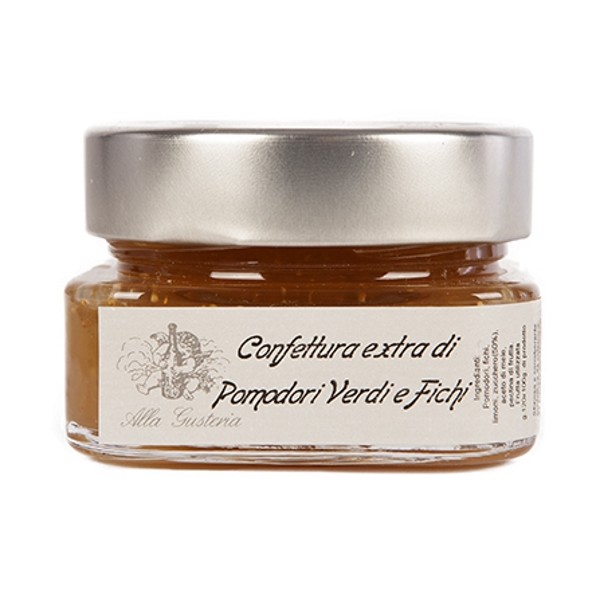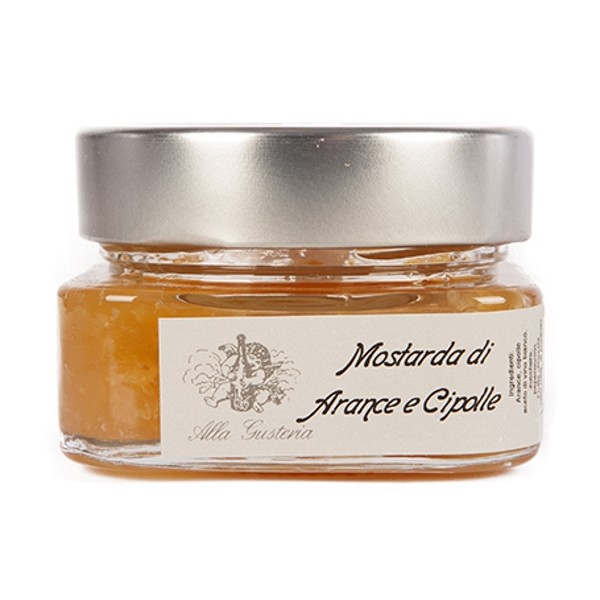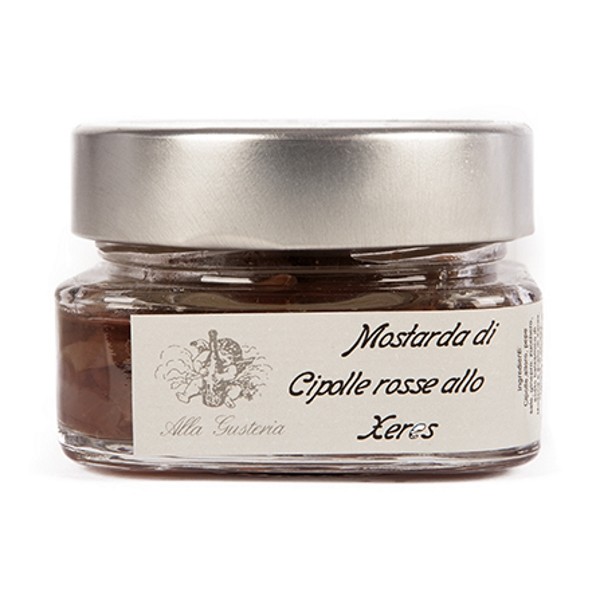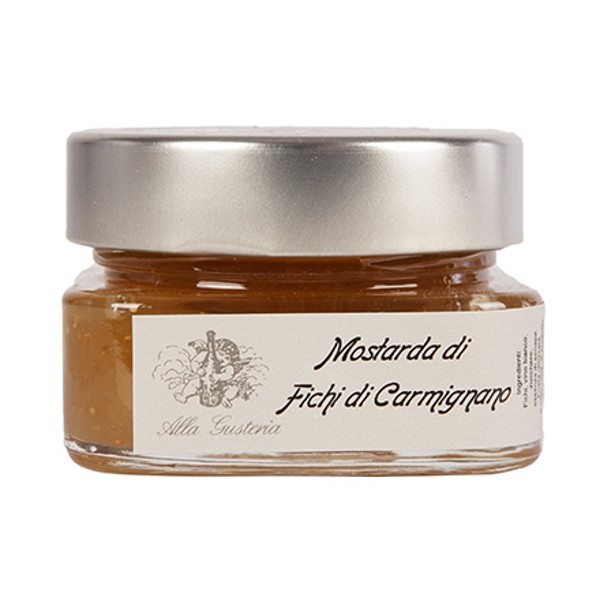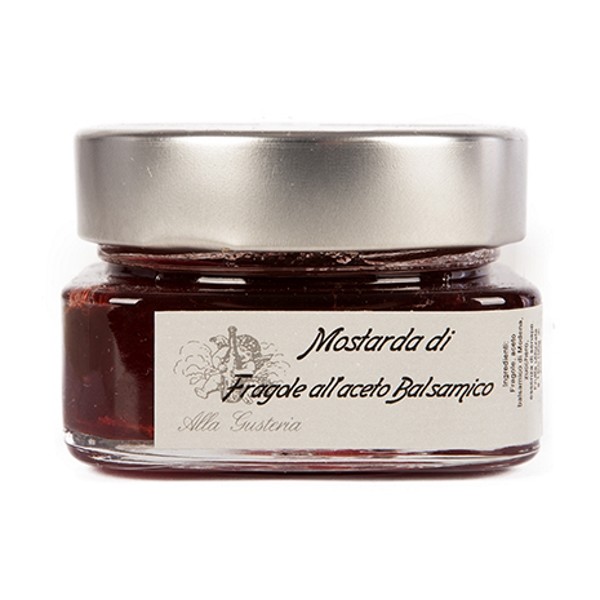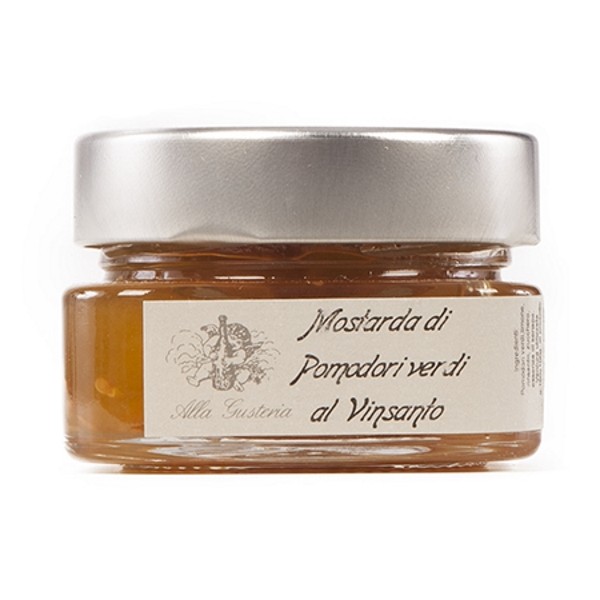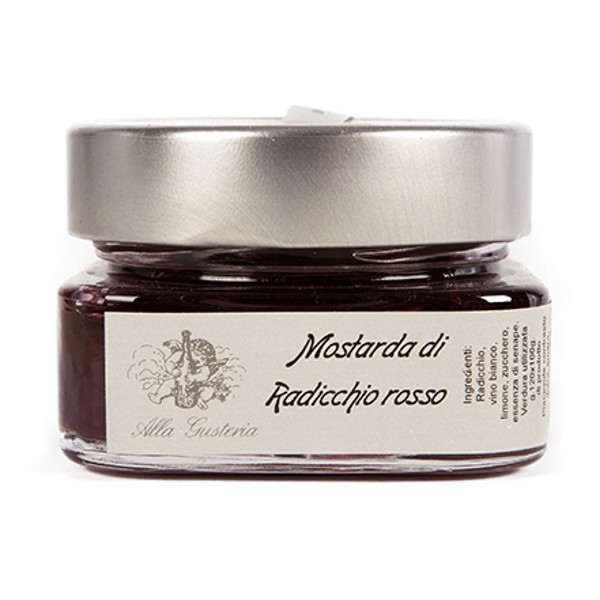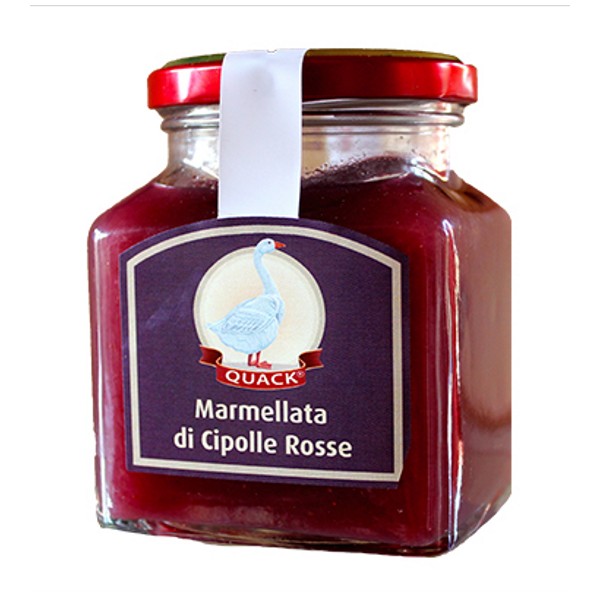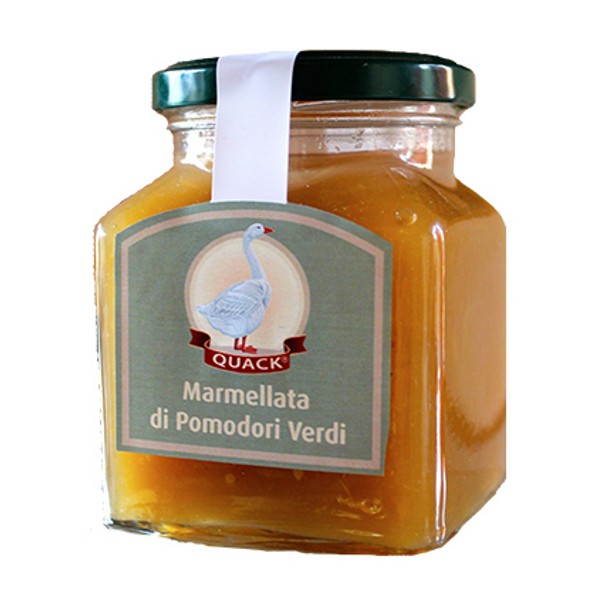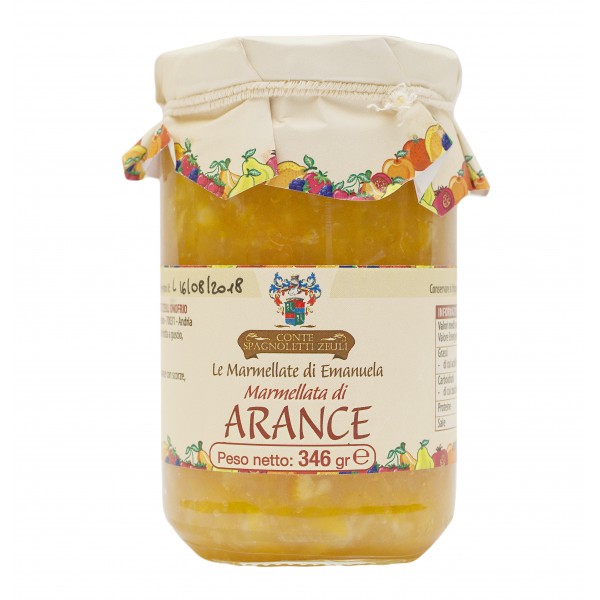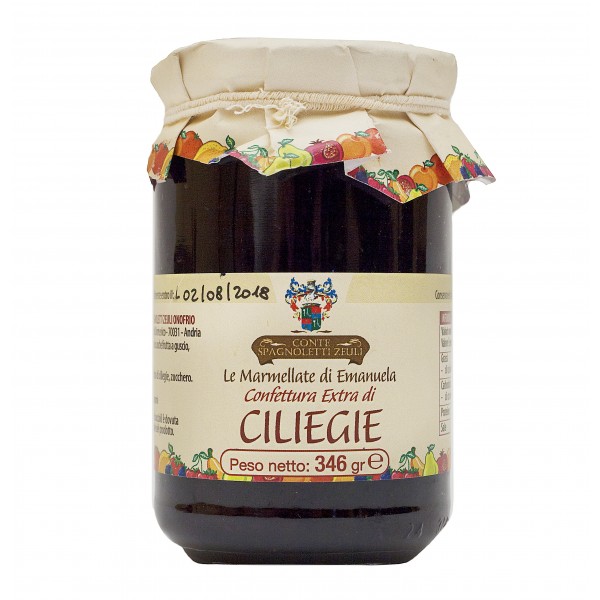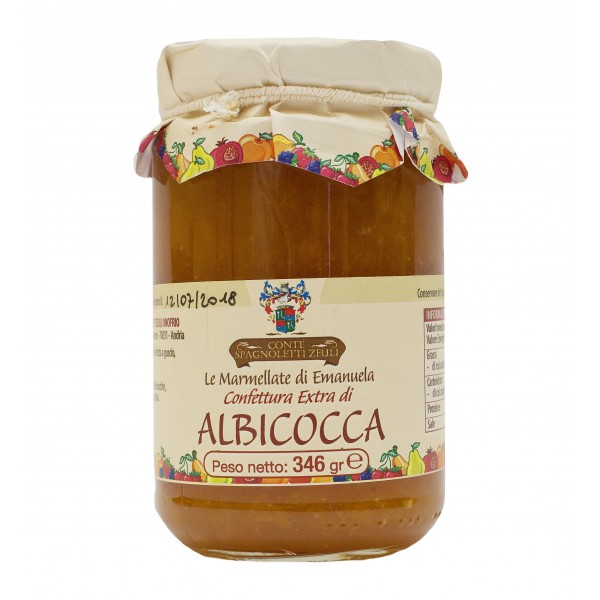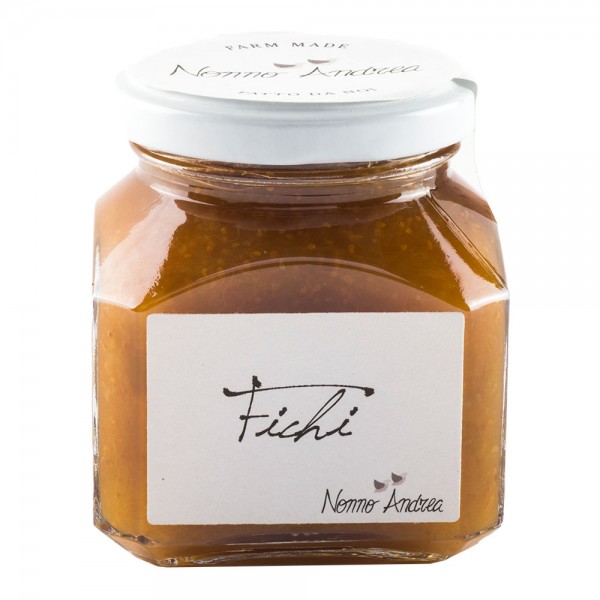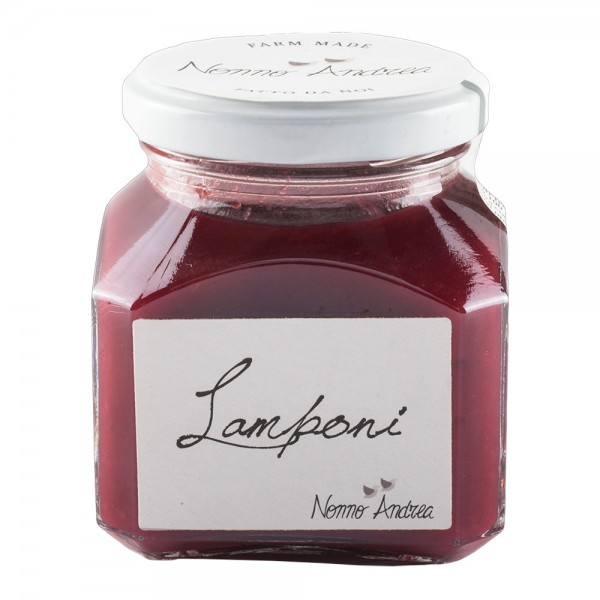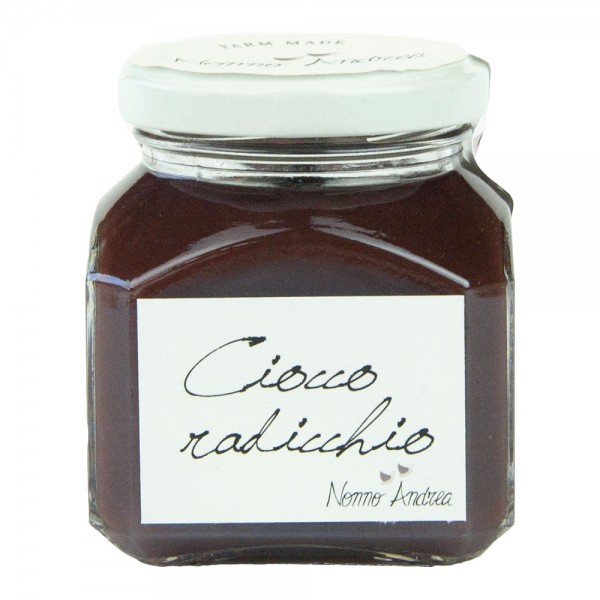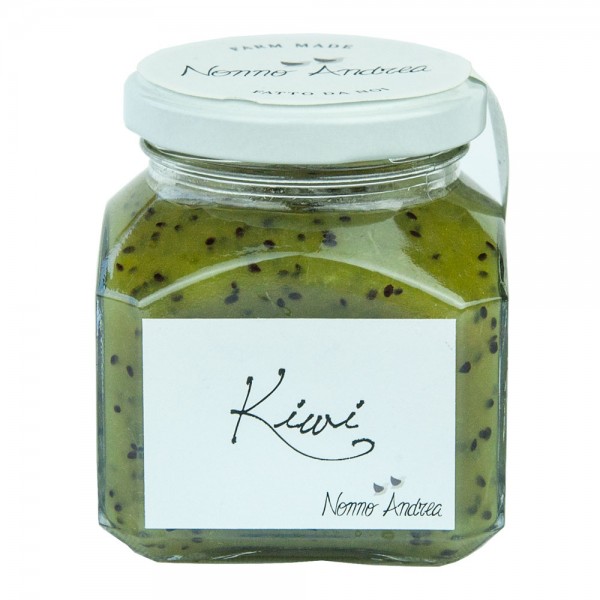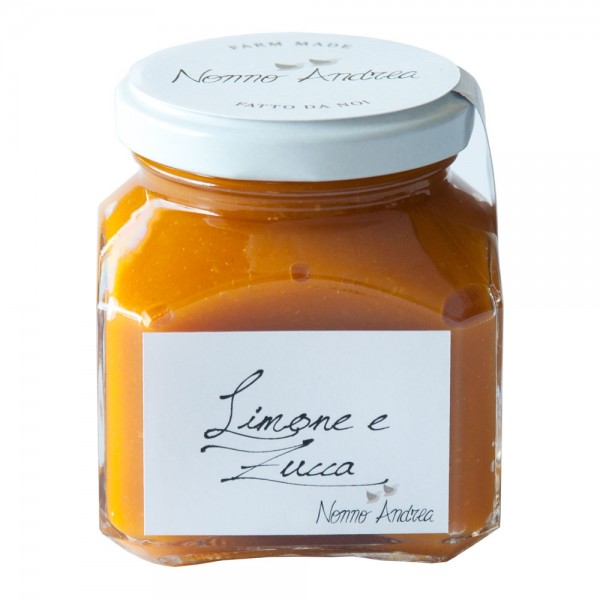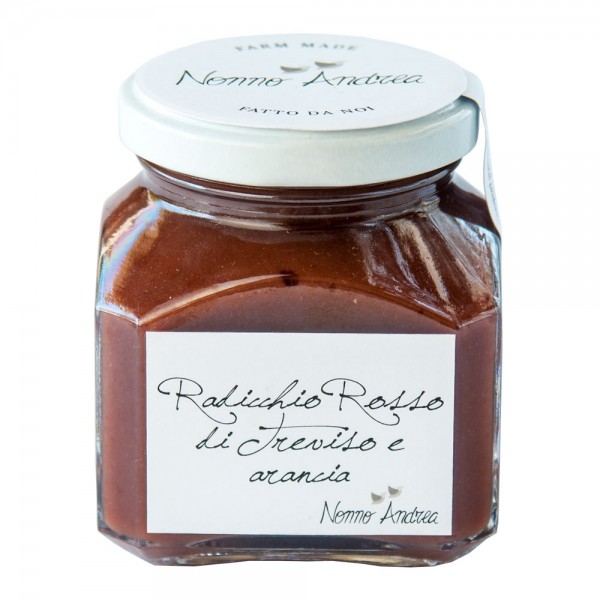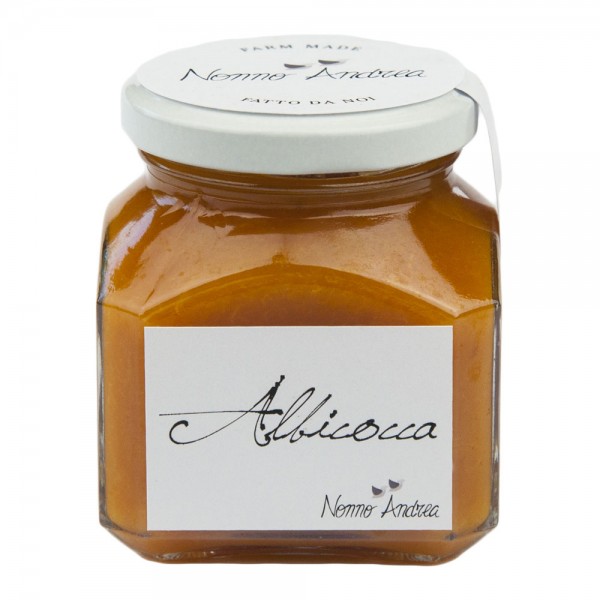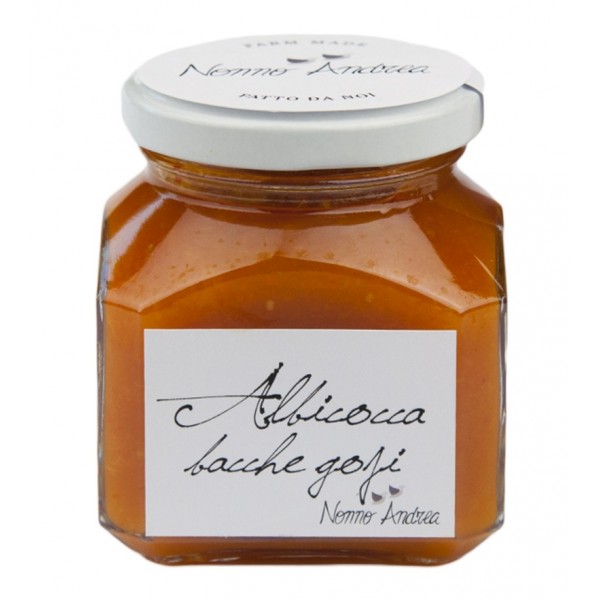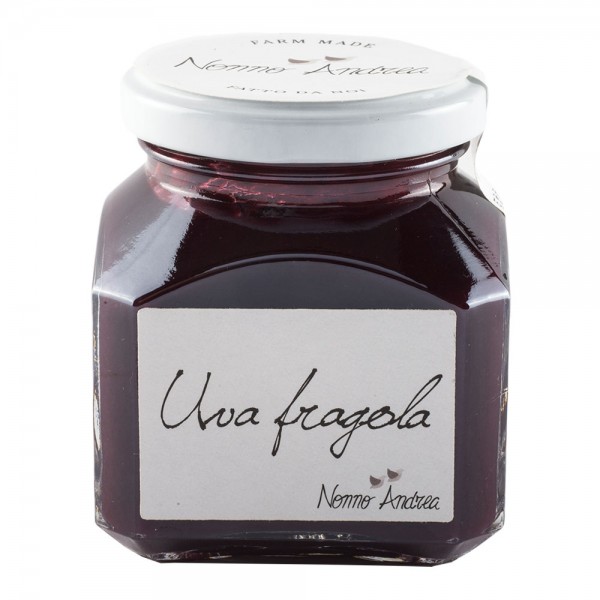No products
Refine
Extra
Marmalade
-
Alla Gusteria - Osteria de Ciotti - Nunquam - Green Tomatoes and Figs Jam
It’s a surprise to remark the so bright red colour, its appetizing fragrance and its intriguing taste. Perfect with soft cheeses, canapé and boiled fish.
5,90 €Sold Out - Not Available -
Alla Gusteria - Osteria de Ciotti - Nunquam - Oranges and Onions Mustard
This mustard is produced without “mustard essence” and so the ingredients’ taste (enough strong !) remains clear. The spicy sensation is given by red chilli pepper, which is blending well with sweet-fresh-sourish flavours of orange and onion.
5,90 €Sold Out - Not Available -
Alla Gusteria - Osteria de Ciotti - Nunquam - Red Onions Mustard at Xeres
The onions are cut manually and then slowly put to cook with sugar and water flavored with bay leaves, juniper and pepper, until the liquid has been significantly reduced.
5,90 €Sold Out - Not Available -
Alla Gusteria - Osteria de Ciotti - Nunquam - Figs Mustard
The figs are fully ripe, peeled and cut one by one and put to cook slowly with the sugar and white wine until the complete evaporation of the latter. Is then added the essence of mustard. The end result is a must try.
5,90 €Sold Out - Not Available -
Alla Gusteria - Osteria de Ciotti - Nunquam - Strawberries Mustard with...
A product with a perfect balance of sweet, spicy and sour, giving at the end a dense and enjoyable mustard. Very good with all kind of cheeses, as fresh and creamy cheeses as ricotta or pecorino.
5,90 €Sold Out - Not Available -
Alla Gusteria - Osteria de Ciotti - Nunquam - Mustard of Green Tomatoes
Tomatoes are harvested from the plant before reaching full ripening, later they are chopped and macerated with lemon, sugar and vin santo ("holy wine"). After several hours the blend is cooked until it is almost candied. The result is an authentic delicacy.
5,90 €Sold Out - Not Available -
Alla Gusteria - Osteria de Ciotti - Nunquam - Mustard of Red Radish
From a very slow cooking of radicchio, white wine and sugar together with a final touch of mustard oil we get a surprising mustard from balance sweet-sour-spicy for a wonderful match with cheeses and cured varies meats.
5,90 €Sold Out - Not Available -
Quack Italia - Red Onions Jam Quack - Jam - 280 g
Particular kind of jam prepared by using the tipical Tropea onions characterized by a red-purple colour. Net weight 280 gr.
5,50 € -
Quack Italia - Green Tomatoes Jam Quack - Jam - 280 g
Particular kind of jam prepared by using green tomatoes that are characterized by a slightly sour taste. Net weight 280 gr.
5,50 € -
-
-
-
Nonno Andrea - Fig Sweet Compote - Sweet Compotes Organic
In our Farm-made kitchen we prepare our sweet compotes through low temperatures cooking and in a vacuum; then we quickly pasteurize them at 80°C (for storability) and after that we immediately cool them down; in this way we manage to keep the fruits' properties as much as possible.
6,90 € -
Nonno Andrea - Raspberry Sweet Compote - Sweet Compotes Organic
In our Farm-made kitchen we prepare our sweet compotes through low temperatures cooking and in a vacuum; then we quickly pasteurize them at 80°C (for storability) and after that we immediately cool them down; in this way we manage to keep the fruits' properties as much as possible.
6,90 € -
Nonno Andrea - Choco and Red Radicchio of Treviso I.G.P. Sweet Compote -...
In our Farm-made kitchen we prepare our sweet compotes through low temperatures cooking and in a vacuum; then we quickly pasteurize them at 80°C (for storability) and after that we immediately cool them down; in this way we manage to keep the fruits' properties as much as possible.
6,90 € -
Nonno Andrea - Kiwi Sweet Compote - Sweet Compotes Organic
In our Farm-made kitchen we prepare our sweet compotes through low temperatures cooking and in a vacuum; then we quickly pasteurize them at 80°C (for storability) and after that we immediately cool them down; in this way we manage to keep the fruits' properties as much as possible.
6,90 €Sold Out - Not Available -
Nonno Andrea - Lemon and Pumpkin Sweet Compote - Sweet Compotes Organic
In our Farm-made kitchen we prepare our sweet compotes through low temperatures cooking and in a vacuum; then we quickly pasteurize them at 80°C (for storability) and after that we immediately cool them down; in this way we manage to keep the fruits' properties as much as possible.
6,90 € -
Nonno Andrea - Red Radicchio of Treviso I.G.P. and Orange Sweet Compote -...
In our Farm-made kitchen we prepare our sweet compotes through low temperatures cooking and in a vacuum; then we quickly pasteurize them at 80°C (for storability) and after that we immediately cool them down; in this way we manage to keep the fruits' properties as much as possible.
6,90 € -
Nonno Andrea - Apricot Sweet Compote - Sweet Compotes Organic
In our Farm-made kitchen we prepare our sweet compotes through low temperatures cooking and in a vacuum; then we quickly pasteurize them at 80°C (for storability) and after that we immediately cool them down; in this way we manage to keep the fruits' properties as much as possible.
6,90 €Sold Out - Not Available -
Nonno Andrea - Apricot and Goji Berries Sweet Compote - Sweet Compotes Organic
In our Farm-made kitchen we prepare our sweet compotes through low temperatures cooking and in a vacuum; then we quickly pasteurize them at 80°C (for storability) and after that we immediately cool them down; in this way we manage to keep the fruits' properties as much as possible.
9,60 €Sold Out - Not Available -
Nonno Andrea - Fox Grape Sweet Compote - Sweet Compotes Organic
In our Farm-made kitchen we prepare our sweet compotes through low temperatures cooking and in a vacuum; then we quickly pasteurize them at 80°C (for storability) and after that we immediately cool them down; in this way we manage to keep the fruits' properties as much as possible.
6,90 €




